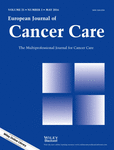Maintaining professional activity during breast cancer treatment
Abstract
The question of returning to work and pursuing professional activity during cancer treatment is an increasingly important consideration. The present work focuses on factors affecting the feasibility of maintaining professional activity during treatment for breast cancer, for women who wished to do so. Written questionnaires were collected from 216 patients between March and November 2012. Since the onset of their treatment, 31.4% of the women (68/216) had not been on sick-leave. The main factors associated with the pursuit of professional activity were: considering the availability of their physician to answer questions as unimportant [OR = 18.83 (3.60–98.53); P ≤ 0.05]; considering the diagnosis of cancer as likely to have a weak impact on career perspectives [OR = 4.07 (2.49–6.64); P ≤ 0.05]; not having any children in the household [OR = 3.87 (2.38–6.28); P ≤ 0.05]; being in a managerial position [OR = 3.13 (1.88–5.21); P ≤ 0.05]. Negative predictive factors were: physician mentioning adverse effects of the treatment [OR = 0.31 (0.16–0.58); P ≤ 0.05], and patient rating workload as high [OR = 0.26 (0.15–0.46); P ≤ 0.05]. As a result of advances in therapeutic strategies, more patients will expect healthcare professionals, as well as employers and occupational health societies, to prioritise issues pertaining to the maintenance of professional activities during cancer treatment.




